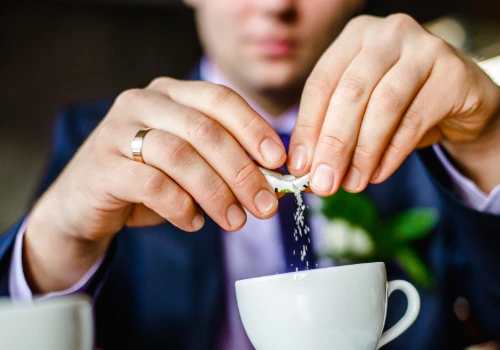
The Basics: Why People Choose Sugar-Free Sweeteners
For people living with diabetes or those monitoring their blood sugar, sugar-free sweeteners can seem like a healthier alternative.
These low- and no-calorie substitutes—found in diet sodas, protein shakes, and “sugar-free” desserts—offer sweetness without the glucose spike.
Common types include:
- Aspartame (Equal®)
- Sucralose (Splenda®)
- Stevia (Truvia®, PureVia®)
- Saccharin (Sweet’N Low®)
- Acesulfame-K (Sunett®)
- Monk fruit and allulose (newer natural options)
Are They Actually Safe for Diabetics?
Yes — when used in moderation.
According to the American Diabetes Association (ADA) and the FDA, all approved sugar substitutes are considered safe for consumption within daily recommended limits.
They don’t raise blood sugar the same way as table sugar and can help people with diabetes reduce total carbohydrate and calorie intake.
However, “safe” doesn’t mean “limitless.” Overuse may lead to:
- Digestive issues (especially with sugar alcohols like xylitol or sorbitol)
- Increased sweet cravings or taste adaptation
- Potential microbiome effects, which are still being studied
Do Sugar-Free Sweeteners Cause Insulin Spikes?
For most people, no significant insulin spike occurs after consuming non-nutritive sweeteners.
However, some studies show that certain sweeteners—especially sucralose and saccharin—may cause minor insulin responses in some individuals when consumed frequently or with carbohydrates.
Bottom line:
- Everyone’s body reacts differently.
- Occasional use is fine, but balance is key.
- Natural options like stevia or monk fruit tend to have the least impact on insulin response.
Healthier Ways to Manage Sweet Cravings
If you’re managing diabetes or prediabetes:
- Choose whole-food snacks (like berries, nuts, or Greek yogurt).
- Drink water infused with lemon or mint instead of diet sodas.
- Save sweeteners for treats, not every meal.
- Focus on fiber and protein to keep blood sugar steady.
When to Talk to Your Doctor
If you notice bloating, cravings, or unexplained blood-sugar changes after using sugar-free products, bring it up during your next visit.
Your Primary Care Provider or Endocrinologist at BASS Medical Group can help you choose the right nutrition plan for your body and health goals.



